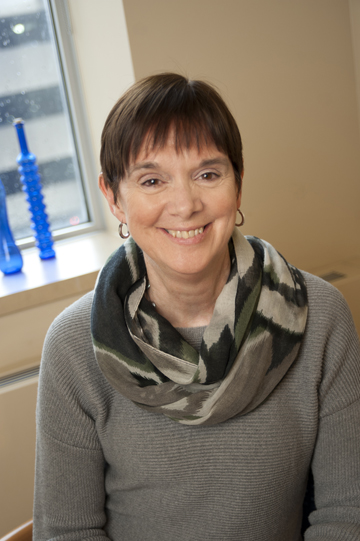Ontario eConsult Program aims to provide faster, easier access to genetic services
Better understanding our genetics can help detect disease early, and in some cases, even prevent it.
Genetic analysis can identify who inherited variants that put them at a higher risk of cancer so they can have more personalized screening. Genetic insights are also helpful for preventing and managing other health conditions.
But genetics services are limited in Ontario. Some Ontarians must wait for months for a genetics consultation, and others in remote parts of the province may not have local access to genetics services at all.

A new Genetics in Medicine paper by the University of Toronto’s (U of T) Dr. June Carroll and colleagues shows that a virtual platform connecting primary care providers with geneticists could help close these gaps.
The Ontario eConsult Program allows for secure, asynchronous virtual consultations between Ontario primary care providers and specialists of all kinds. Primary care providers can send questions and securely upload pertinent patient information to the platform and hear back with answers and resources within a few days. This can help them determine next steps with their patients and decide whether referral is warranted.
Though eConsult has been around for years, geneticists are a relatively new addition to the platform.
“There are often long wait times to get a genetics consultation, and geographic barriers because of where geneticists are located,” says Carroll, a Clinician Scientist and Professor in U of T’s Department of Family and Community Medicine. “We think eConsult might be an ideal way to address some of that inequity and scarcity of resources.”
Between Jan. 2019 and June 2020, Carroll and colleagues collected questionnaires and interviews from primary care providers and geneticists to explore how the platform was received and what impact it had on patient care relating to genetics.
More than half of primary care providers reported receiving good advice on a new course of action for their patients, and about one-third said eConsult confirmed the course of action they were planning.
“Often the geneticist would suggest tests or investigations that could be done while waiting for an appropriate referral, which could help improve the efficiency of care,” Carroll says.
Also encouraging for efficiency was that, in one-third of cases, primary care providers who were considering referring their patient to a geneticist decided they didn’t need a referral after the eConsult.
“We saw that as a really positive result because referrals take time and resources,” Carroll says.
Though most primary care providers and geneticists reported positive experiences with the platform, geneticists reported receiving many of the same questions again and again. Carroll and colleagues are now exploring educational tools and resources to help address those knowledge gaps.
“Overall, we think eConsult has great potential for answering genetic questions as they come up, and addressing inequities in access,” Carroll said. “There is also an increased appetite for virtual care since the pandemic.”
Though the study didn’t focus on cancer, questions about cancer genetics were the most asked on the platform, comprising about one-third of questions reported.
“All that we have learned about how genetics can be used to prevent cancers depends on making genetic services available to everyone who can potentially benefit,” says the study’s Senior Investigator Dr. Eva Grunfeld, a Professor in U of T’s Department of Family and Community Medicine and an OICR Clinician Scientist. “Dr. Carroll’s research helps us understand how we can make that happen.” Dr. Carroll’s study was conducted as part of a larger multi-disciplinary, multi-year program of research lead by Dr. Grunfeld and funded by Canadian Institutes of Health Research, designed to examine how to better provide cancer services in the community.


